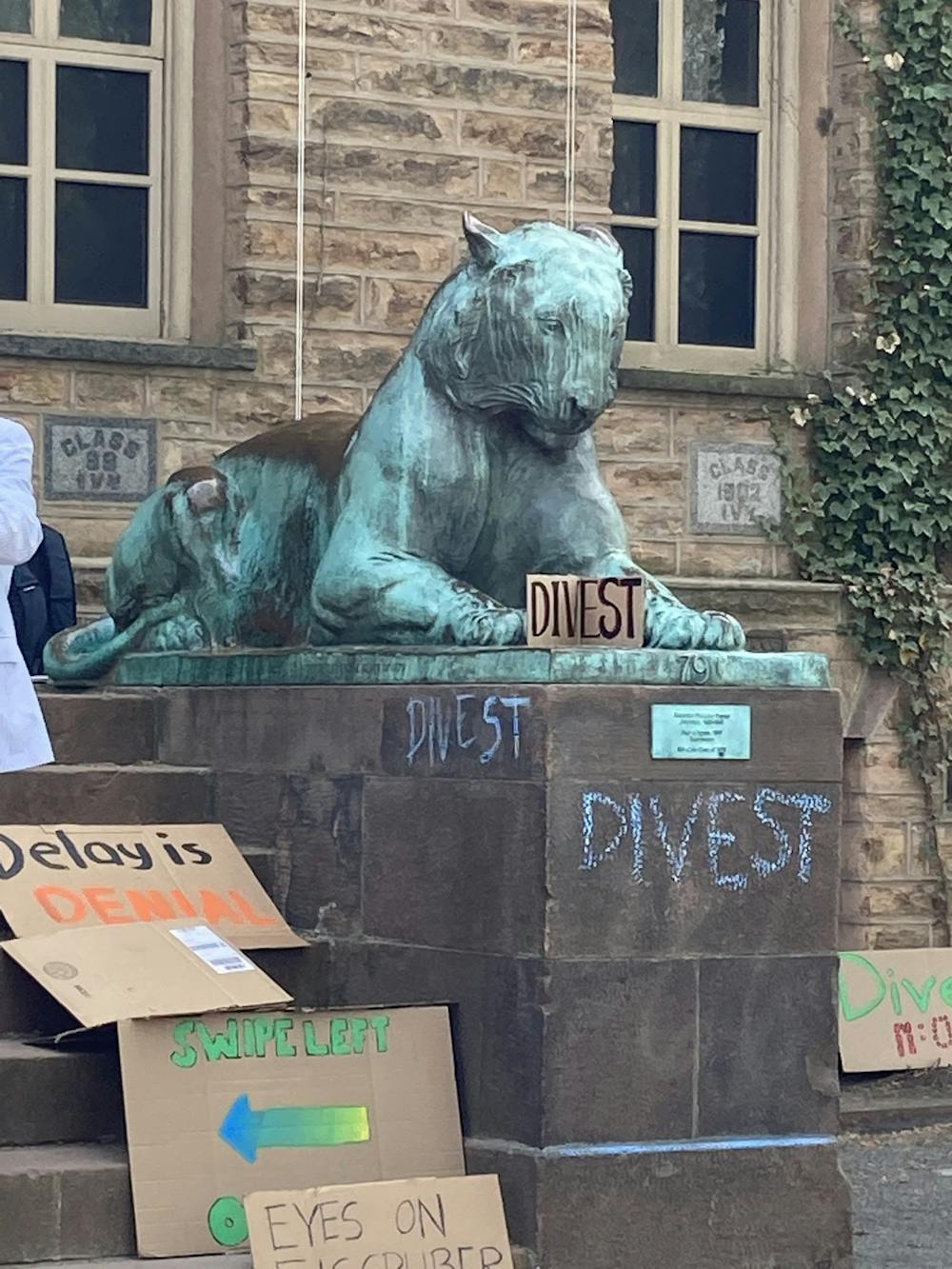The following is a guest contribution and reflects the authors’ views alone. For information on how to submit an article to the Opinion Section, click here.
On Monday, Princeton took the first small step towards divestment from fossil fuels. This is the first time the CPUC Resources Committee has recommended fossil fuel divestment despite repeated demands since 2013. It is important to recognize the work of students, alumni, faculty, and others in the Princeton community who have contributed enormous labor in getting the University to this point.
In the face of a climate crisis that threatens the lives of us all, however, Monday’s recommendations are not enough.
The Resources Committee needed to evaluate three criteria before recommending divestment to the Board of Trustees: 1) that there has been considerable and sustained interest in the campus community, 2) that there is a “direct and serious” conflict with University values, and 3) that there is consensus on how the University should respond to the situation. They have determined that divestment, as part of a broader dissociation from fossil fuels (e.g., an end to fossil fuel-funded research), satisfies these criteria.
The Committee’s specific recommendations are as follows:
1. Princeton University should dissociate from fossil fuel companies that deny climate change and/or spread climate disinformation.
2. Princeton University should dissociate from the highest greenhouse gas-emitting sectors of the fossil fuel industry (e.g. thermal coal) as quickly as possible.
3. For sectors of the fossil fuel industry not fitting into recommendation #2, Princeton University should establish criteria for conditional dissociation from fossil fuel companies that have not undertaken an acceptable path towards carbon neutrality, as guided by scientific recommendations.
4. Princeton University should create an administrative process and determine what expert input is needed to establish, implement, and sustain actionable criteria for dissociation that is consistent with the three recommendations above. These criteria should not be based on past behavior of companies, but instead on their current and prospective actions.
Over 2,200 members of the Princeton community have endorsed fossil fuel divestment. To ensure this divestment is meaningful, we request the Resources Committee address the following before their final recommendations are made public and presented to the Board’s Finance Committee on May 10:
1. The Resources Committee defines divestment-eligible companies using language which is vague and leaves room for loopholes. The Committee should clarify what it means by “an acceptable path towards climate neutrality” and “scientific recommendations.”
2. The Resources Committee makes no reference in their recommendations to Science-Based Targets (SBTs) or goals. As these are important measures of accountability and rigor, the Committee should clarify if or how the University would ensure thoroughness and third-party verification of its dissociation from fossil fuels.

3. The Resources Committee implies a distinction will be made between “thermal coal” and other toxic fossil fuels, namely oil and gas. The Committee should recognize that in 2021, divesting from coal alone is not enough. If Princeton wants to keep up with peer institutions, it must divest from all fossil fuel companies who cannot demonstrate serious commitment to climate action, committing to (at minimum) reducing greenhouse gas emissions 50 percent by 2030, and 100 percent by 2050.
4. The Resources Committee should affirm in their recommendations that purposely delaying climate action is a form of climate denial, and that companies who do so should be scrutinized accordingly.
5. The Resources Committee should, to avoid confusion, reiterate in their recommendations that dissociation includes divestment.
Once the Resources Committee submits their final recommendations, we urge the Board of Trustees to take the following actions:
1. The Resources Committee has had 15 months to review our proposal and solicit the expert input needed to establish a dissociation process — and now it says more consultation is needed. Given the spiraling climate crisis, the Board of Trustees should move faster and promptly set a date to announce their decision to the Princeton community.
2. While the resources committee considered divestment and dissociation together, the Board of Trustees has the power to consider divestment and dissociation separately. If the Board approves the Resources Committee’s recommendations, they should immediately divest from the fossil fuel industry and dissociate as swiftly as possible.
The recommendations announced on Monday are the least Princeton can do. We call on Princeton to dispense with the committees and finally take action against this blatantly destructive industry.
Frontline communities cannot afford any more delay. With calls from the Biden Administration to halve greenhouse gas emissions by 2030 and realize climate justice, one of the world’s wealthiest per-capita universities must no longer abdicate its responsibility to meet this existential threat.
Please visit our website for more information about our proposal, endorsements, the divestment process, and the Board of Trustees. Follow us on social media, and join 2200 others who have pledged to withhold donations until divestment.
We urge Princeton’s leadership to lead.
Divest Princeton is a volunteer organization urging the University to divest and dissociate from unsustainable fossil fuel companies.








